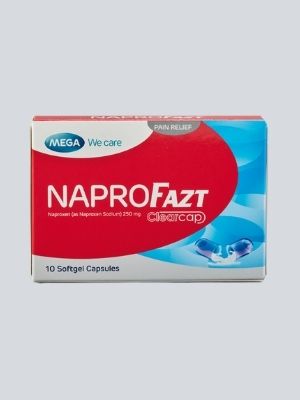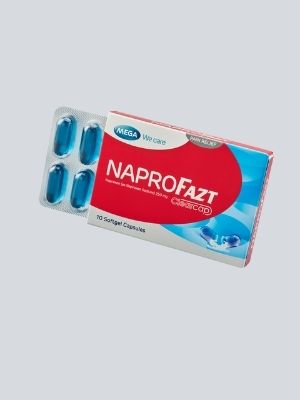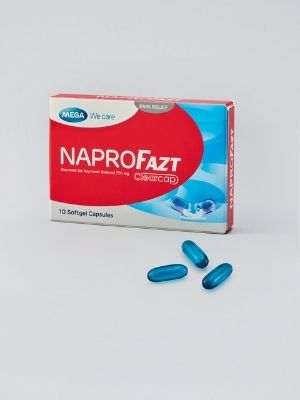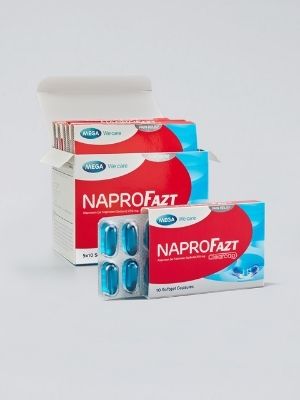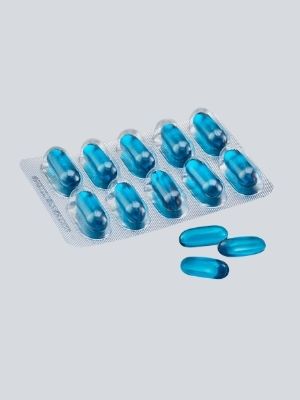- 01 OVERVIEW
- 02 WHAT'S IN IT?
- 03 INDICATIONS
- 04 HOW TO USE
- 05 AVAILABLE IN
Conditions likes aches, pain and fever are all associated with an increased level of inflammation in the body. NAPROFAZT contains a drug called naproxen which can reduce inflammation and its effects on the body. It comes in a softgel capsule to allow easy absorption and provide quick relief from aches, pains and fevers.
Each Softgel Capsule contains:
Active ingredient:
Naproxen (as Naproxen Sodium) 200 mg
Inactive Ingredients:
Polyvinylpyrrolidone, Propylene Glycol, Lactic Acid, Polyethylene Glycol 600, Gelatin, Glycerin, Sorbital, Purified Water, Brilliant Blue.
It is used for temporarily relief of aches and pains such as migraine, gout, rheumatoid arthritis, osteoarthritis, ankylosing spondylitis, menstrual cramps, headache, toothache, etc.
It is also used to temporarily reduce fever.
In adults:
For the symptomatic treatment of osteoarthritis, rheumatoid arthritis, or ankylosing spondylitis, take 1-2 capsules twice daily.
For the symptomatic treatment of acute gouty arthritis, take 3 capsules initially followed by 1 capsule every 8 hours.
For relief of mild to moderate pain or menstrual cramps and fever, take 2 capsules initially followed by 1 capsule every 6-8 hours or 2 capsules every 12 hours.
Thailand

